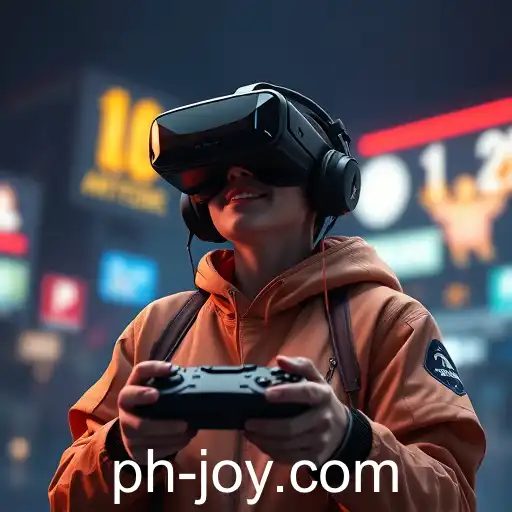
Exploring how 'phjoy' is reshaping the landscape of gaming and what it means for the future of interactive entertainment.
In recent years, 'phjoy' has emerged as a prominent keyword within the gaming community, particularly on various English gaming websites. As we delve into the year 2025, this term represents more than just an online trend; it signifies a transformative era in digital entertainment that merges advanced technology with immersive user experiences.
The gaming industry has experienced unprecedented growth, fueled by technological innovations and a shift in consumer expectations. Central to this evolution is 'phjoy', a concept that encapsulates the pursuit of pure gaming pleasure in virtual realms. Gaming platforms are increasingly adopting this philosophy, integrating high-speed processing, lifelike graphics, and real-time collaboration to create seamless experiences for users worldwide.
Recent events have highlighted the significance of platforms emphasizing 'phjoy'. As virtual reality (VR) and augmented reality (AR) technologies become more accessible, games are no longer confined to traditional screens. Instead, players find themselves transported to dynamic, interactive universes where the boundaries between the virtual and the real world blur. This shift is not only redefining player engagement but also expanding the potential for educational and therapeutic applications.
Commentators in the gaming sector note that embracing 'phjoy' involves more than just technological upgrades. It requires a mindset shift among developers and consumers alike. Developers are challenged to create content that is not only technically impressive but also emotionally resonant. Players, on the other hand, are invited to reimagine how they interact with digital content, paving the way for a more personal and meaningful engagement with their favorite games.
As 'phjoy' continues to influence gaming culture, it also poses questions about the ethical implications of highly immersive environments. Privacy concerns, data security, and the psychological impacts of prolonged virtual exposure are hotly debated topics, urging the need for balanced consumption and informed regulation.
Looking ahead, the influence of 'phjoy' is set to extend far beyond gaming. Sectors such as education, healthcare, and even urban planning are beginning to adopt playful, gamified elements in their digital interfaces, inspired by the engaging principles underpinning modern games. As such, this dynamic interplay between enjoyment and technology is poised to shape societal norms and behaviors in profound ways.
In summary, 'phjoy' encapsulates the spirit of a future where gaming is not only a pastime but a core component of digital culture, influencing an array of sectors and reshaping how we interact with technology on a fundamental level.




